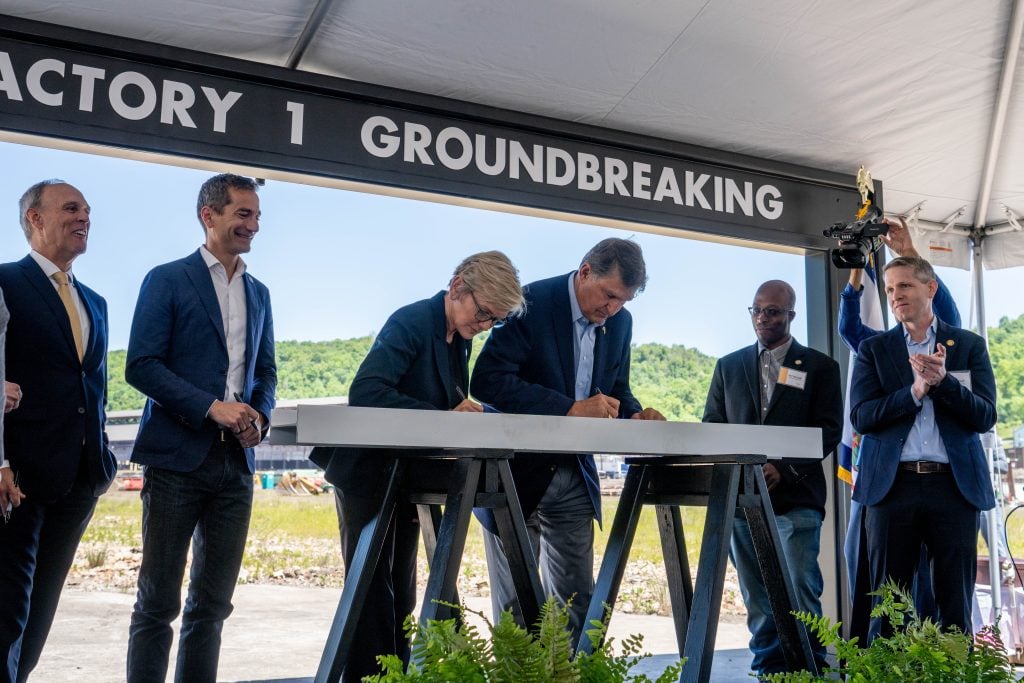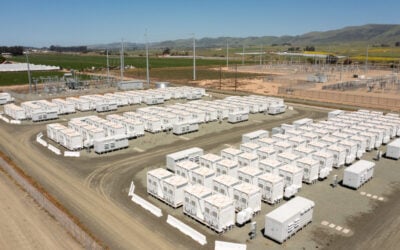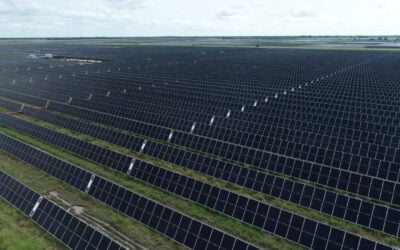
The US Department of Energy (DOE) has issued Requests for Information (RFIs) on safety training for energy storage systems, and how to tackle manufacturing design challenges.
With energy storage technologies, particularly lithium-ion (Li-ion) battery energy storage systems (BESS) already moving into multiple gigawatts of annual deployments in the US, the government wants to put training in place for first responders, law enforcement, authorities having jurisdiction (AHJ) and other stakeholders.
Enjoy 12 months of exclusive analysis
- Regular insight and analysis of the industry’s biggest developments
- In-depth interviews with the industry’s leading figures
- Annual digital subscription to the PV Tech Power journal
- Discounts on Solar Media’s portfolio of events, in-person and virtual
At the same time, the DOE also wants to better understand the challenges that must be overcome to establish mass production of energy storage technologies.
The two RFIs were launched a week apart by the DOE’s Office of Electricity (OE). The first on safety training was announced just before the end of last month (30 April), and the second on manufacturing was announced just over a week ago (6 May).
Creating ‘storage-ready’ communities
The DOE wants to create a so-called ‘Blue-sky training program’ (‘BSTP’) which would educate stakeholders on how to deal with ‘unanticipated failures’ of energy storage systems (ESS), including those caused by cybersecurity issues and physical abuse of equipment.
The OE said it is important that communities are fully prepared to host energy storage facilities, noting that deployment of ESS can be delayed or even prevented by uncertainty over how responses to failures should be managed. The RFI is open until 5 pm Eastern Time on 3 June 2024.
The move echoes steps being taken at the state level in two of the US’ leading regional markets, California and New York: as of October last year, battery storage facilities in California are required to have in place emergency response plans (ERPs), while in New York, a working group comprising a number of different state agencies has proposed a number of changes to the state fire code which would include a need for ERPs among them.
DOE wants to determine priorities for supporting manufacturing
The need for safe storage is critical given the rapid growth of battery storage technology in the US.
In March, analysis firm Wood Mackenzie noted that almost 4GW of battery storage was deployed across the country in the final quarter of 2023, and the analysis and research group is forecasting 59GW of new grid-scale BESS deployments by 2030.
DOE modelling projects that more than 200GW of storage will be connected to the US grid by 2040. That forecast was revised upwards from a 50GW prediction made prior to the Inflation Reduction Act (IRA) legislation passing, which introduced incentives for clean energy technologies including storage.
Those IRA measures incentivise both downstream deployment of storage as well as upstream manufacturing of key technologies, such as batteries. They are already having a big impact—our colleagues at PV Tech reported on 7 May that more than 100,000 new clean energy manufacturing jobs across various technologies have been announced in the US since the IRA’s passing, according to environmental economist group E2.
The Office of Electricity is seeking input from academics, industry, government research laboratories and other stakeholders on the technology design challenges that are faced in the early stages of the manufacture of energy storage.
“Manufacturing domestic energy storage technologies on an industrial scale is foundational to increasing the affordability and widespread use of these technologies,” OE assistant secretary for electricity Gene Rodrigues said.
“Responses to this RFI will help shape our understanding of manufacturability challenges and inform how we prioritise solutions so that developers can unlock the full potential of their technology to benefit the American people.” The DOE will accept responses to the RFI until 8 pm Eastern Time, 10 June 2024.






